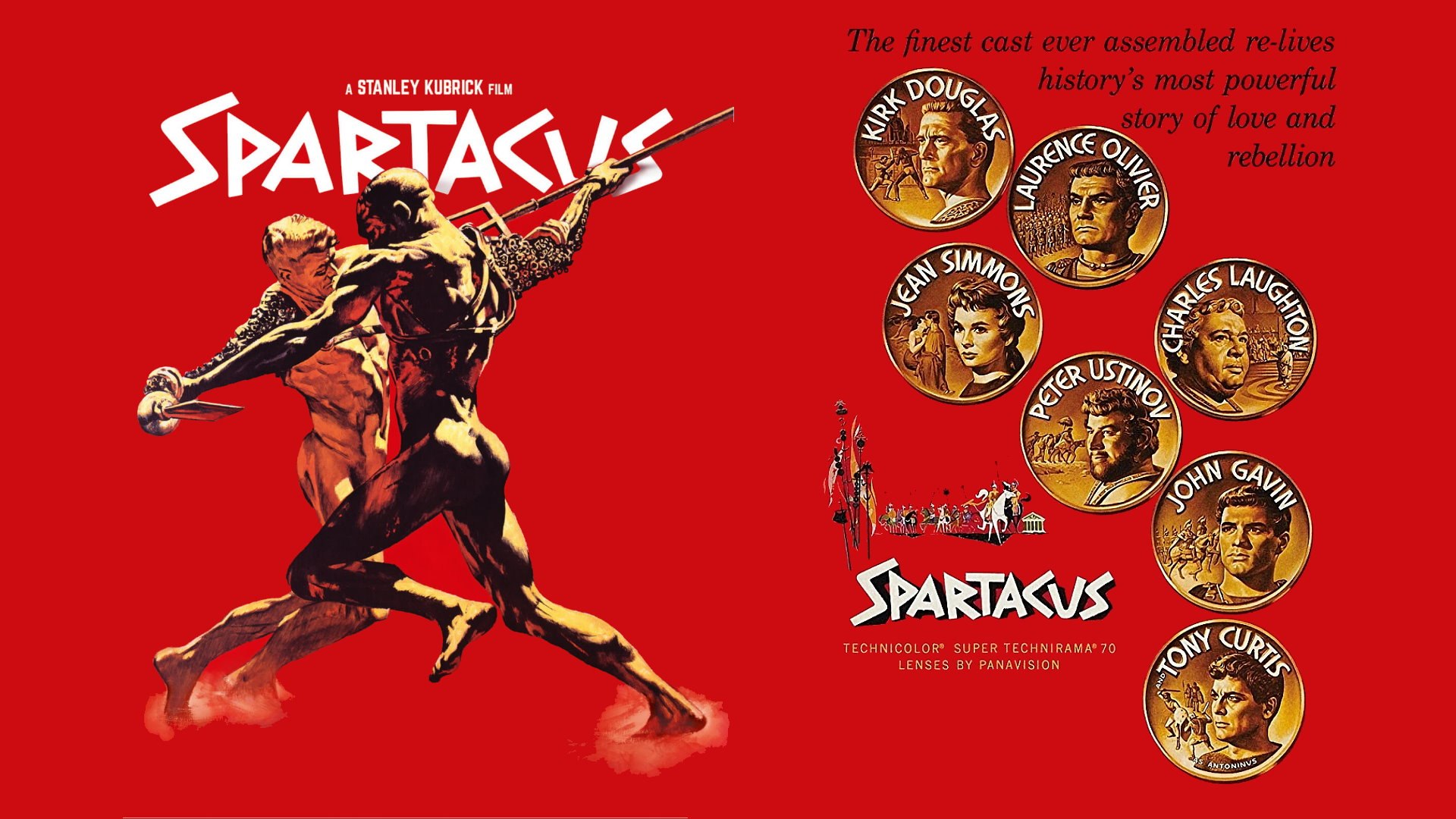Spartacus (1960)
- movie news
- September 19, 2024

“Spartacus,” released in 1960, stands as one of the most iconic historical epics in American cinema, directed by the visionary Stanley Kubrick. Based on Howard Fast’s novel and scripted by Dalton Trumbo, the film chronicles the life of Spartacus, a Thracian slave who led a monumental uprising against the Roman Republic. Through its grand scale, powerful performances, and profound themes of freedom and justice, “Spartacus” not only captivates audiences but also prompts critical reflections on the nature of power, rebellion, and humanity.
Set in the tumultuous era of ancient Rome, “Spartacus” tells the story of a man born into slavery, whose yearning for freedom becomes a catalyst for a massive revolt. The film begins with Spartacus (played by Kirk Douglas) being captured and sold into slavery, where he is trained as a gladiator. His journey from an oppressed individual to a revolutionary leader is depicted with striking emotional depth, emphasizing his internal struggles and the broader implications of his fight for freedom.
Kirk Douglas delivers a remarkable performance as Spartacus, embodying the character’s physicality and emotional resonance. His portrayal captures the essence of a man who, despite the brutal circumstances, possesses an indomitable spirit and a profound sense of justice. Douglas’s charisma and intensity make Spartacus a compelling figure, evoking both sympathy and admiration from the audience. The film effectively portrays Spartacus as not just a warrior but a symbol of resistance against oppression, making his plight relatable and inspiring.
The supporting cast enhances the film’s impact, featuring stellar performances from actors such as Laurence Olivier, Jean Simmons, Charles Laughton, and Peter Ustinov. Olivier plays Crassus, the ambitious and power-hungry Roman general whose desire for control sets the stage for the conflict. Ustinov, as the slave trader Batiatus, adds a layer of complexity to the narrative, balancing moments of levity with the darker themes of exploitation and ambition. Each character is well-developed, contributing to the film’s rich tapestry of human experience.
One of the film’s most significant themes is the struggle for freedom. “Spartacus” explores the moral and ethical dilemmas faced by individuals caught in oppressive systems. The narrative raises essential questions about the nature of power and authority, asking viewers to consider the cost of freedom and the sacrifices required to achieve it. As Spartacus rallies his fellow slaves to revolt, the film captures the spirit of solidarity and the shared longing for liberation. This theme resonates deeply, transcending the historical context to speak to contemporary struggles against oppression.

Stanley Kubrick’s direction is masterful, showcasing his ability to blend grand visuals with intimate character moments. The film’s epic scale is highlighted by sweeping battle sequences, intricate set designs, and vibrant cinematography by Russell Metty. The battles are choreographed with a sense of realism, immersing viewers in the chaos and brutality of the conflict. Kubrick’s attention to detail enhances the authenticity of the historical setting, creating a rich backdrop for the characters’ journeys.
The cinematography and art direction contribute significantly to the film’s impact. The use of color, light, and shadow enhances the emotional tone, with stark contrasts that emphasize the duality of oppression and rebellion. The opulent sets and costumes transport viewers to ancient Rome, allowing them to experience the grandeur and decay of the empire firsthand. The film’s visual storytelling is complemented by a powerful score composed by Alex North, which underscores the emotional arcs and elevates key moments.

“Spartacus” also delves into the theme of camaraderie and brotherhood. The relationships forged among the slaves and gladiators serve as a testament to the strength of unity in the face of adversity. The bond between Spartacus and his fellow warriors, particularly the character of Antoninus (played by Tony Curtis), illustrates the idea that solidarity can empower the oppressed. Their shared experiences and sacrifices become a source of strength, reinforcing the film’s message that collective action can challenge the status quo.
The climax of the film culminates in a powerful confrontation between Spartacus and the Roman forces, symbolizing the ultimate struggle between freedom and oppression. The emotional weight of this battle is amplified by the sacrifices made by Spartacus and his followers, illustrating the tragic yet noble nature of their cause. The film does not shy away from the brutal consequences of rebellion, reminding viewers of the harsh realities faced by those who dare to challenge entrenched power structures.

In conclusion, “Spartacus” is a monumental film that transcends its historical setting to explore timeless themes of freedom, identity, and the human spirit. Stanley Kubrick’s direction, combined with Kirk Douglas’s iconic performance, creates a narrative that is both epic in scope and deeply personal. The film’s exploration of rebellion against oppression resonates with audiences, inviting them to reflect on their own struggles for justice and equality. As a cinematic masterpiece, “Spartacus” remains a powerful reminder of the enduring fight for freedom and the resilience of the human spirit in the face of tyranny. Its legacy endures, inspiring generations to stand against injustice and fight for a world where all individuals can live with dignity and autonomy.











